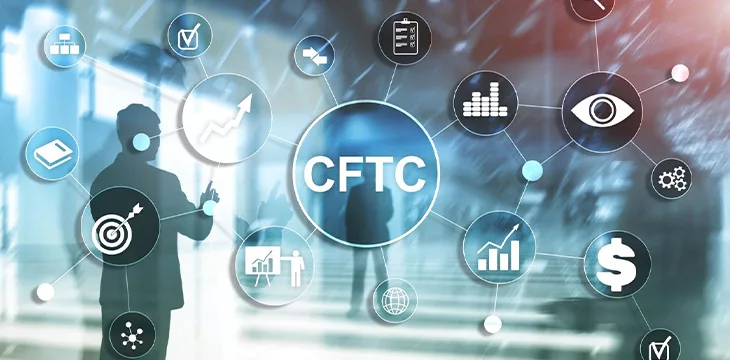|
Getting your Trinity Audio player ready...
|
The U.S. financial market regulator issued and settled charges against three decentralized finance (DeFi) companies, Opyn, ZeroEx, and Deridex, for failing to register and illegally offering commodity transactions in digital assets.
The U.S. Commodity Futures Trading Commission (CFTC) sent a message to DeFi operators that the use of smart contracts doesn’t exempt them from the law, as it announced charges—filed and settled—against DeFi protocols Opyn, Inc., ZeroEx (0x), Inc. and Deridex, Inc.
Deridex and Opyn were charged with failing to register as a swap execution facility or designated contract market, failing to list as a futures commission merchant, and failing to adopt a customer identification program as part of a Bank Secrecy Act compliance program. Along with ZeroEx, they were also charged with illegally offering leveraged and margined retail commodity transactions in digital assets.
CFTC said it went after the three firms based on their use of blockchain protocols and smart contracts, also known as DeFi, to function as trading platforms.
DeFi uses blockchain technology and smart contracts—code written into a blockchain that automatically executes the terms of an agreement or contract when certain conditions are met—to remove third parties and centralized institutions from financial transactions.
“Somewhere along the way, DeFi operators got the idea that unlawful transactions become lawful when facilitated by smart contracts,” said Director of Enforcement Ian McGinley. “They do not. The DeFi space may be novel, complex, and evolving, but the Division of Enforcement will continue to evolve with it and aggressively pursue those who operate unregistered platforms that allow U.S. persons to trade digital asset derivatives.”
Opyn, ZeroEx, and Deridex settled the various charges and were ordered to pay civil penalties of $250,000, $200,000, and $100,000, respectively, as well as agreeing to cease and desist from violating the Commodity Exchange Act (CEA) and CFTC regulations.
The CFTC stated that these were reduced penalties due to the “substantial cooperation” of the three firms with the regulator’s investigations.
The charges and the strong statement by Director of Enforcement McGinley demonstrate the CTFC’s resolve to enforce its authority in the digital asset and DeFi space, despite some seeing the regulator as a softer touch than the Securities and Exchange Commission (SEC) and its regulation by enforcement approach.
But not content to simply enforce existing rules, the CTFC has been ramping up efforts to actively progress digital assets regulation.
CFTC digital asset pilot program
The same day that the regulator announced its charges against the three DeFi firms, CFTC Commissioner Caroline Pham proposed a limited pilot program to potentially change CFTC rules in relation to digital assets.
Pham’s pilot program would set up a roundtable of stakeholders, and then the agency would propose and adopt rules around registration requirements and risk management. Ultimately, the agency would examine the data and then consider whether a permanent change would be made to its rules around digital assets.
“My proposal shares the undeniable goal of helping keep the U.S. ahead of the curve—a goal I am sure we all share,” Pham said, during an event hosted by libertarian think tank the Cato Institute on Thursday. “As I have said before, my approach to any challenge is to get all the information, learn as much as possible, and then find pragmatic solutions, with an eye toward making policy that is informed and practical.”
“In line with our previous pilot initiatives, I am optimistic that this approach will ensure the integrity of our markets and impartial access, foster liquidity and competition, address potential conflicts and risks, and prevent fraud, abusive practices, and manipulation.”
Pham sponsors the CFTC’s Global Markets Advisory Committee (GMAC), which advises the commission on issues affecting the integrity and competitiveness of U.S. markets and U.S. firms. A subcommittee of the GMAC is the Digital Asset Markets Subcommittee, which aims to identify and assess key issues and policy proposals with respect to digital asset markets.
It’s unclear how Pham’s proposed pilot program would mesh with several pieces of digital asset legislation currently working their way through Congress, notably the Financial Innovation and Technology (FIT) for the 21st Century Act, the Blockchain Regulatory Certainty Act, the Crypto-Asset National Security Enhancement and Enforcement Act of 2023, and the Clarity for Payment Stablecoins Act. All of which have bipartisan support and aim, in different ways, to impose new rules, definitions, and jurisdictional clarity for the digital asset space in the U.S., including what constitutes a security or a ‘money transmitter’ and what regulation governs DeFi.
Watch: Crypto regulation will make life easier for BSV blockchain

 02-28-2026
02-28-2026 




